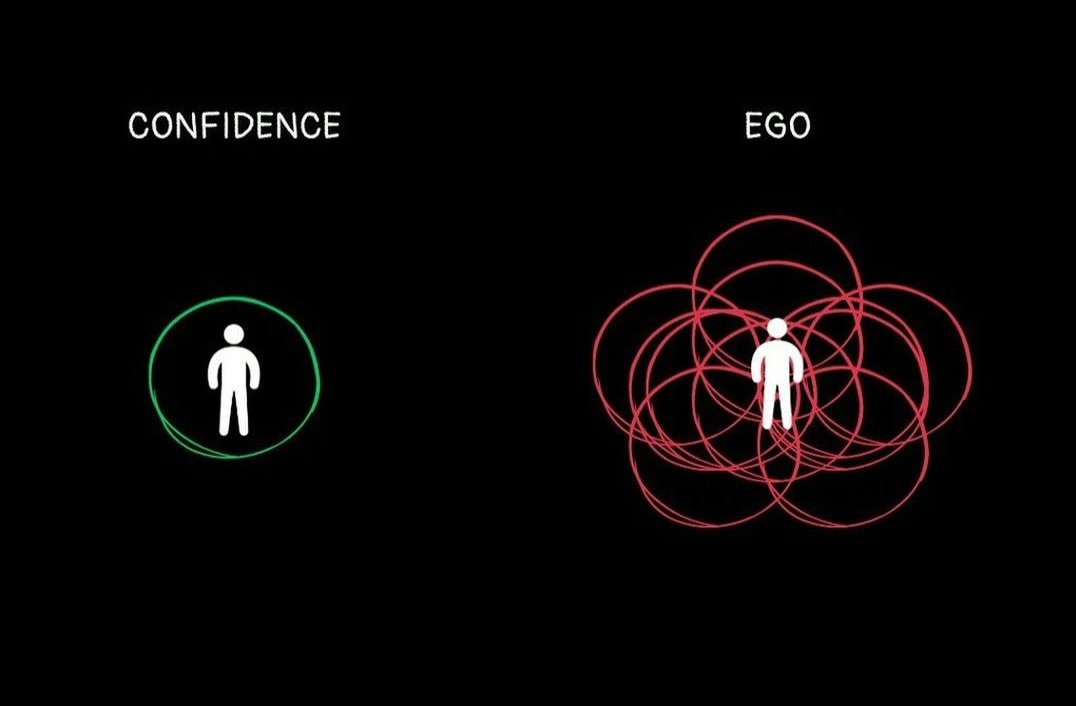What Emotionally Mature People Do Differently
Here Are 10 Traits I’ve Seen in the People Who Have It
Hi, I'm Manuel Saez, 2x Founder, Award-Winning Designer, and Emotional Intelligence Coach 🌻 Here I Share the advice I wish I had while building my businesses ➜ I love fixing old motorcycles 🛵🏍️
Some people seem to have this calm, grounded presence.
You can feel it when they walk into a room.
They don’t dominate with volume, but they hold space.
They listen.
They respond, not react.
They make decisions that feel clear and right.
You trust them, not because they’re perfect, but because they’re steady.
I used to think that was just personality. Some people are born like that. Turns out, it’s something you can learn.
Since becoming an emotional intelligence coach, I’ve been trying to define what makes someone an emotional intelligence champion.
Not a perfect person, but someone with emotional fitness. Someone who knows themselves, regulates their reactions, and shows up with integrity and clarity.
Here’s what I’ve learned. These aren’t traits you’re born with. They’re skills you build.
And if you’re on that path too, maybe this list will show you what you’re already doing well, and what you might want to work on next.
1. Self-Awareness
It starts with awareness.
Before you can lead others, before you can make clear decisions, you have to know what’s happening inside you.
Emotionally intelligent people develop the ability to observe their thoughts and feelings without getting swept away by them.
They notice the heat of anger rising before it becomes an outburst.
They recognize the grip of anxiety before it turns into avoidance.
They don’t always act perfectly, but they create just enough space between emotion and action to make a better choice.
That space changes everything. It’s where clarity lives. It’s where integrity lives.
This wasn’t always easy for me. There were years when I thought my thoughts were the truth. If I felt it, I believed it. And that belief drove a lot of reactions I later regretted.
I am not perfect, but learning to step back, to catch a thought before it turned into a story, was one of the biggest shifts in my growth. I wrote about that in this essay, and it still feels like one of the most powerful lessons I’ve learned.
Self-awareness isn’t a one-time realization.
It’s a daily practice. And it’s the foundation for everything that follows.
2. Decisiveness Without Drama
I used to think fast decisions meant strong leadership.
Move quickly, trust your gut, don't look back.
That worked, until it didn’t.
The truth is, many of my worst decisions came from a place of urgency or emotional charge.
Anger.
Ego.
The need to prove a point. In those moments, I wasn’t choosing, I was reacting. And the consequences usually made things more complicated, not less.
What I’ve learned is that emotional intelligence doesn’t mean shutting down or stepping back from hard decisions.
It means knowing when not to decide.
Sometimes the smartest move is to pause.
To feel the discomfort without rushing to fix it.
To wait until the urgency fades and your mind clears.
From that place, you can see more angles. You can ask better questions.
You’re not just solving the problem in front of you; you’re responding to the whole system around it.
That shift from impulsive to intentional has changed how I lead.
It’s helped me make fewer messy decisions.
It’s helped me build trust.
And it’s helped me trust myself, because I know I’m not making calls just to quiet the noise in my head.
3. They’re Easy to Love
This one took me a while to understand.
For a long time, I thought emotional intelligence was mostly about how you handled stress or made decisions. I didn’t realize it also had everything to do with love.
To be emotionally intelligent is to be someone who can love and be loved.
That sounds simple, but it’s not. A lot of us walk around armored up, trying to be strong, impressive, untouchable.
We confuse control with confidence. We keep people at a distance because deep down, we’re afraid they’ll see the messy parts.
But the irony is, the more grounded you are in who you are, the more open you become.
You stop trying to perform.
You stop needing to be right all the time.
You become someone who listens, who forgives, who gives others space to be themselves, too.
And that’s the kind of person people feel safe with.
Not perfect, but real.
Not always agreeable, but available.
Being easy to love isn’t about pleasing everyone. It’s about letting people in. And letting yourself be seen.
4. Grace Under Pressure
We’re all emotional beings. And when things get hard, conflict, tension, and misunderstandings arise. It’s our ability to manage those emotions that makes the difference.
We’re not built to be calm in the chaos. Our system goes into overdrive, and if we’re not careful, we react from fear, pride, or frustration.
That’s why grace under pressure matters. It’s not about staying cool on the surface. It’s about staying grounded enough to respond with clarity and care.
Emotionally intelligent people don’t avoid hard conversations.
And they don’t inflame them either.
They hold space for others without losing their footing.
They can disagree without disconnecting.
Listen without collapsing.
Speak with truth and kindness, even when it’s uncomfortable.
That kind of grace builds trust. It turns friction into progress. And it’s something I keep working on, because in the moments when I get it right, everything around me starts to shift positively.
5. Selective Caring
Emotionally intelligent people don’t give a fuck. Well, they do, but only about the right things.
We’re taught that caring deeply is a strength. And it is, when it’s intentional.
But when you care about everything,
what people think,
what didn’t go perfectly,
what’s completely out of your control, you burn out. Fast.
Selective caring is like an internal filter. It’s the ability to step back and ask:
Does this matter in the long run?
Can I actually change this?
Is this even mine to carry?
Without that filter, you end up in constant reaction mode, managing other people’s emotions, fixing things that aren’t yours to fix, spinning your wheels on things you can’t control.
It’s exhausting.
What I’ve learned is that this kind of discernment isn’t cold, it’s compassionate.
When you stop scattering your energy everywhere, you have more of it for the things that actually matter.
The people you love.
The work that fulfills you.
The boundaries that keep you grounded.
6. Letting Go
Some people carry every insult, mistake, or misstep like it’s tattooed on their soul. I’ve been that person.
Holding on can feel like control. Like if you replay the moment enough times, you’ll rewrite the past.
But you don’t. All you do is stay stuck in it.
The grudge becomes a wall.
The guilt becomes a weight.
And you end up building a prison around yourself with emotions that were never meant to be permanent.
Emotionally intelligent people know how to let go. Not because they’re morally superior, but because they’ve seen the cost of holding on.
They’ve learned that peace isn’t something you get from others; it’s something you give to yourself.
I wrote about this in Saying Sorry, and how learning to apologize—really apologize—wasn’t about being right or wrong.
It was about release.
About letting go of my part, so I could stop carrying what no longer served me.
Letting go isn’t weakness. It’s how you make space for something new.
7. Gratitude as a Lens
Emotionally intelligent people have an uncanny ability to see the good in the world.
To appreciate their blessings and find gratitude in the simple, mundane things most people overlook.
Life is hard sometimes. And being grateful isn’t about ignoring that or pretending everything’s fine when it’s not.
It’s about choosing to notice what’s still working,
what’s still beautiful,
what’s still worth appreciating, even on the hard days.
In one of the hardest moments of my life, I started a daily gratitude journal. It was a way to shift my focus from the pain to what was still great in my life.
Since then, I’ve made it a nightly practice. Every evening, I post a gratitude message on X—not for show, but to remind myself of what’s real. It helps me reset. It helps me end the day grounded, no matter what kind of day it was.
Gratitude, over time, becomes more than a habit. It becomes a way of seeing the world.
8. Clarity of Self
Emotionally intelligent people control their ego, know who they are, and they don’t need constant outside validation to prove it.
That doesn’t mean they’re never insecure.
It just means they don’t live from that insecurity.
They’ve done the work to understand their values, their needs, their voice.
They’ve faced themselves enough times to know what’s real and what’s noise.
When you have that kind of clarity, everything changes.
You stop shapeshifting to please others.
You stop chasing approval.
You make decisions that align with who you are, not who you think you need to be.
And in a world that’s always trying to pull you in a hundred directions, that kind of inner clarity is a superpower.
It keeps you steady.
It keeps you honest.
It keeps you, you.
9. Redefining Success
Emotionally intelligent people know that success isn’t just about money, titles, or status. It’s about alignment. It’s about peace of mind.
They still have ambition.
They still want to build, grow, and make an impact.
But they’re not willing to burn themselves out or betray their values to get there.
They know that achievement without emotional well-being is a hollow win.
They define success on their own terms, not by what looks good from the outside, but by what feels right on the inside.
That’s something I had to learn the hard way. I chased a version of success that looked impressive, but left me disconnected from myself. It took time (and a few painful lessons) to realize that real success includes joy, balance, and emotional clarity.
I wrote about success in this essay, where I explore what success looks like from an emotional intelligence perspective. You might see yourself in it.
10. Optimism as a Discipline
This one’s underrated.
Most people think optimism is just a personality trait, something you’re either born with or not.
But emotionally intelligent people know it’s a choice.
A discipline.
A habit you strengthen by how you respond to life, especially when it doesn’t go your way.
Optimism isn’t about ignoring problems or pretending everything is fine. It’s about refusing to let setbacks define you.
It’s the ability to hold space for what’s hard while still believing something good can come out of it.
Optimistic people aren’t naive. They’re resilient. They ask better questions:
What’s good here?
What else could be true?
What can I build from this?
They look for potential, not just problems. And they move through the world with a kind of belief that’s earned, not handed to them.
In my experience, this kind of optimism isn’t flashy or loud. It’s quiet, grounded, and steady. The kind that helps you keep going, not because everything is perfect, but because you believe it’s still worth showing up.
There’s no trophy for becoming an emotional intelligence champion. No gold stars or finish line.
But you’ll know you’re on the right path when you feel lighter.
When your relationships feel easier.
When your decisions feel cleaner.
When you go to bed at night, with less tension in your chest.
That’s the real reward.
Now I’d love to hear from you:
What trait do you think defines an emotionally intelligent person?
Reply and let me know, I’d love to hear your take.
Sending you good vibes 🌻
Manuel
manuelsaez.com




